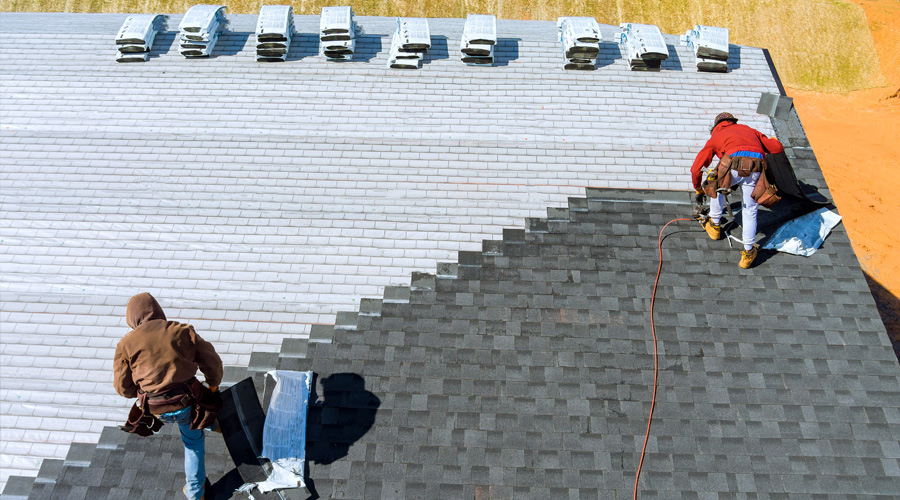As a roofing contractor, you know that no two days on the job are the same—whether you’re repairing a leak, installing a new roof system, or replacing damaged materials after a storm. You work at heights, handle specialized equipment, and face unpredictable conditions, all while managing a business and a team. That’s why having the right insurance coverage isn’t just a box to check—it’s an essential part of protecting everything you’ve built.
This guide breaks down the most common risks roofing contractors face and outlines the insurance coverages that can help keep your business moving forward, even when the unexpected happens.
Risks Roofing Contractors Face
Property Risks
You rely on a wide range of tools and equipment—from nail guns and caulking tools to torches, ladders, scaffolding, and heavy-duty spray gear. These, along with your materials, storage spaces, and office setup, are key to staying productive. If something gets stolen, damaged in a fire, or lost to bad weather, the cost of replacement (plus the downtime) can add up fast.
Vehicle Risks
Your vehicles are the lifeline of your operation—getting you, your crew, and your equipment to job sites safely and on time. Whether it’s one truck or a fleet, an accident can result in significant costs, including repair bills, injury claims, and project delays.
Liability Risks
If a customer, supplier, or passerby gets injured on one of your job sites or at your shop—or if your work causes damage after a job is finished—you could be held legally responsible. Lawsuits, settlements, and legal fees can take a toll on your business.
Cyber Risks
Even in the trades, digital tools are becoming more common for scheduling, estimates, and storing client info. But that also opens the door to cyberattacks. A data breach could result in major headaches—from legal costs and system repairs to lost trust and reputational damage.
Key Insurance Coverages for Roofers
Here’s a look at the coverage options every roofing contractor should consider:
- Commercial Property Insurance – Protects your buildings, tools, and equipment from covered losses like fire, theft, or vandalism.
- Commercial Auto Insurance – Covers your work vehicles and helps pay for accident-related repairs, injuries, or damage to others’ property.
- Inland Marine Insurance (Tool & Equipment Coverage) – Protects your tools, equipment, and materials while they’re in transit or temporarily stored at a job site.
- General Liability Insurance – Helps cover costs if someone is injured or property is damaged as a result of your work or at your premises.
- Completed Operations Coverage – Covers claims that come up after a job is finished, like if a roofing system fails and causes damage later on.
- Cyber Liability Insurance – Helps you recover from a cyberattack, covering costs like data recovery, customer notifications, legal defence, and more.
- Errors and Omissions (E&O) Insurance – Offers protection if a client claims your work was incomplete, poorly done, or didn’t meet your contract.
- Employment Practices Liability (EPL) Insurance – Covers legal costs if a current or former employee sues for things like wrongful termination, discrimination, or harassment.
- Umbrella and Excess Liability Insurance – Provides extra protection if a claim exceeds the limits of your other liability policies. It can also broaden your overall coverage.
Keep Your Business Covered
Roofing is high-risk work—but the right insurance helps you manage that risk and focus on doing great work for your clients. Make sure your business is covered from all angles.
Have questions or need help reviewing your current policy? Reach out to us today.

